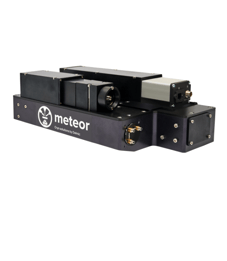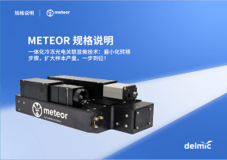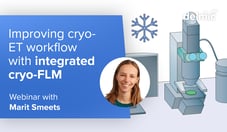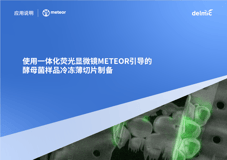[1] W. Dai et al., “Visualizing virus assembly intermediates inside marine cyanobacteria,” Nature, vol. 502, no. 7473, pp. 707–710, 2013, doi: 10.1038/nature12604.
[2] V. Chaikeeratisak et al., “Assembly of a nucleus-like structure during viral replication in bacteria,” Science (80-. )., vol. 355, no. 6321, pp. 194–197, Jan. 2017, doi: 10.1126/science.aal2130.
[3] F. J. B. Bäuerlein et al., “In Situ Architecture and Cellular Interactions of PolyQ Inclusions,” Cell, vol. 171, no. 1, pp. 179-187.e10, Sep. 2017, doi: 10.1016/j.cell.2017.08.009.
[4] Q. Guo et al., “In Situ Structure of Neuronal C9orf72 Poly-GA Aggregates Reveals Proteasome Recruitment,” Cell, vol. 172, no. 4, pp. 696-705.e12, Feb. 2018, doi: 10.1016/j.cell.2017.12.030.
[5] G. Zhao et al., “Mature HIV-1 capsid structure by cryo-electron microscopy and all-atom molecular dynamics.,” Nature, vol. 497, no. 7451, pp. 643–6, May 2013, doi: 10.1038/nature12162.
[6] J. Collado and R. Fernández-Busnadiego, “Deciphering the molecular architecture of membrane contact sites by cryo-electron tomography,” Biochimica et Biophysica Acta - Molecular Cell Research, vol. 1864, no. 9. Elsevier B.V., pp. 1507–1512, 01-Sep-2017, doi: 10.1016/j.bbamcr.2017.03.009.
[7] P. C. Hoffmann, T. A. M. Bharat, M. R. Wozny, J. Boulanger, E. A. Miller, and W. Kukulski, “Tricalbins Contribute to Cellular Lipid Flux and Form Curved ER-PM Contacts that Are Bridged by Rod-Shaped Structures,” Dev. Cell, vol. 51, no. 4, pp. 488-502.e8, Nov. 2019, doi: 10.1016/j.devcel.2019.09.019.
[8] M. Schaffer et al., “A cryo-FIB lift-out technique enables molecular-resolution cryo-ET within native Caenorhabditis elegans tissue,” Nat. Methods, vol. 16, no. 8, pp. 757–762, 2019, doi: 10.1038/s41592-019-0497-5.
[9] J. Harapin, M. Börmel, K. T. Sapra, D. Brunner, A. Kaech, and O. Medalia, “Structural analysis of multicellular organisms with cryo-electron tomography,” Nat. Methods, vol. 12, no. 7, pp. 634–636, Jun. 2015, doi: 10.1038/nmeth.3401.
[10] X. Zhu et al., “Cryo-EM structures reveal coordinated domain motions that govern DNA cleavage by Cas9,” Nat. Struct. Mol. Biol., vol. 26, no. 8, pp. 679–685, Aug. 2019, doi: 10.1038/s41594-019-0258-2.
[11] G. Chreifi, S. Chen, L. A. Metskas, M. Kaplan, and G. J. Jensen, “Rapid tilt-series acquisition for electron cryotomography,” J. Struct. Biol., vol. 205, no. 2, pp. 163–169, Feb. 2019, doi: 10.1016/j.jsb.2018.12.008.
[12] J. R. Perkins, I. Diboun, B. H. Dessailly, J. G. Lees, and C. Orengo, “Transient Protein-Protein Interactions: Structural, Functional, and Network Properties,” Structure, vol. 18, no. 10. pp. 1233–1243, 13-Oct-2010, doi: 10.1016/j.str.2010.08.007.
[13] J. J. Quinn and H. Y. Chang, “Unique features of long non-coding RNA biogenesis and function,” Nature Reviews Genetics, vol. 17, no. 1. Nature Publishing Group, pp. 47–62, 01-Jan-2016, doi: 10.1038/nrg.2015.10.
[14] T. R. Cech and J. A. Steitz, “The noncoding RNA revolution - Trashing old rules to forge new ones,” Cell, vol. 157, no. 1. Cell Press, pp. 77–94, 27-Mar-2014, doi: 10.1016/j.cell.2014.03.008.
.png)














